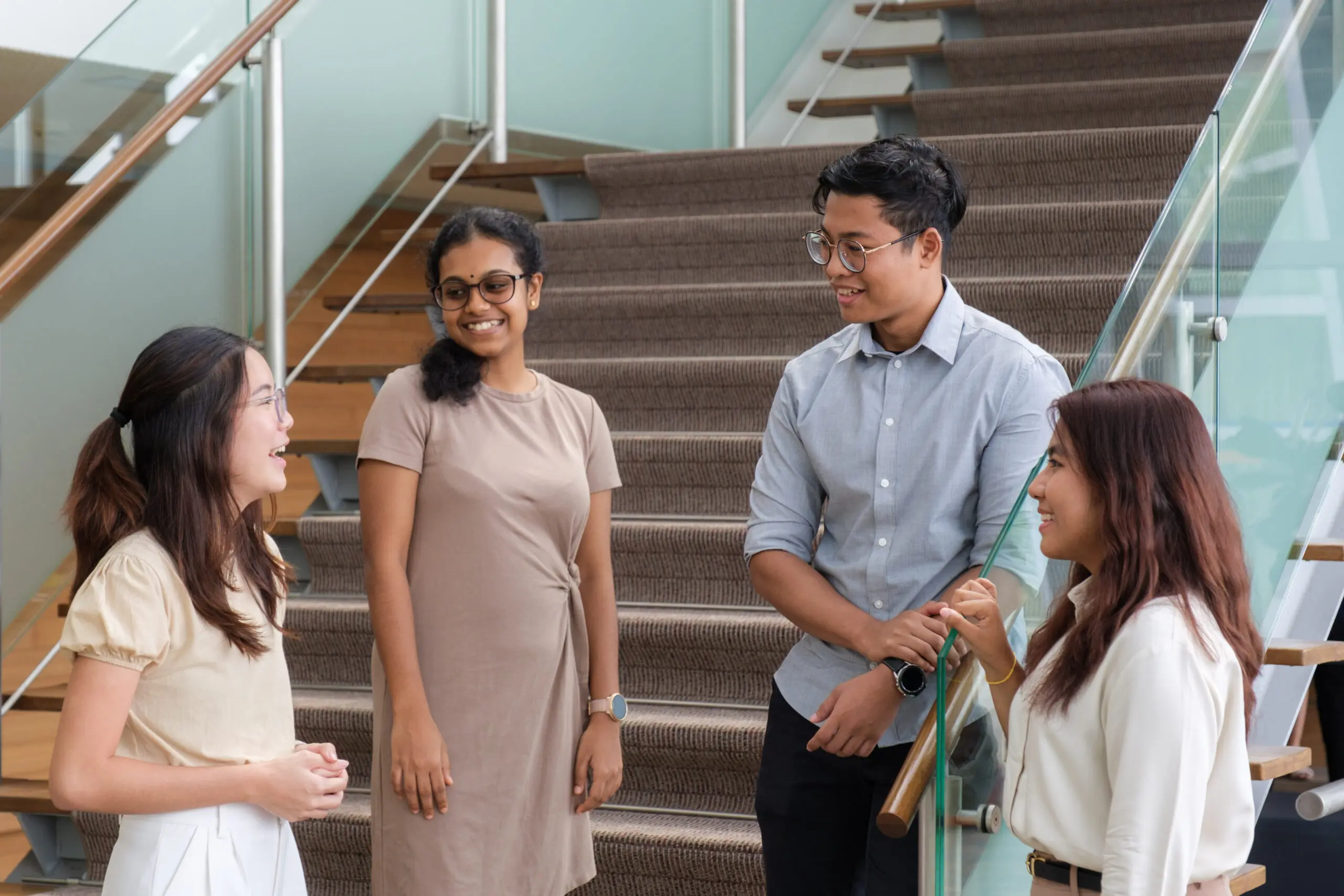NUS Yong Loo Lin School of Medicine enhances the integrated Bachelor of Medicine and Bachelor of Surgery (MBBS) programme with an interdisciplinary common curriculum.
Since August 2023, the National University of Singapore Yong Loo Lin School of Medicine, in collaboration with the Alice Lee Centre for Nursing Studies, Faculty of Dentistry, Saw Swee Hock School of Public Health, and the Department of Pharmacy, has rolled out a new interdisciplinary common curriculum. This new NUS Common Curriculum for Healthcare Professional Education has been carefully crafted to ensure that the learning outcomes are aligned with the future vision of healthcare with focus on preventive healthcare and facilitating ageing in place through the use of technology and analytics.
First-year students from NUS Medicine will join first-year students from Dentistry, Pharmacy and Nursing to take five specially designed courses together, and they will collaborate across the four healthcare disciplines as part of their learning journey. The NUS Common Curriculum, which is to be completed in the first two years of their candidature, will complement the existing MBBS programme.
This cross-disciplinary curriculum seeks to cultivate awareness of social issues, teamwork, communication, ethics and professionalism, digital literacy, and interprofessional education in the context of health and healthcare. In addition, the NUS Common Curriculum aims to equip the students with collaborative skills to engage in population healthcare planning, delivery and evaluation. Lessons are conducted through blended learning with a mix of online and in-person classes, which will be customised to feature groups as well as individual learning sessions such as case-based discussions, fireside chats and self-reflections.
Students will also engage in interdisciplinary experiential learning through the Longitudinal Patient Experience, where teams of students from various healthcare disciplines will visit patients in their homes and living environment continually for one year. This immersive learning journey provides students with opportunities to apply the concepts learnt in class to provide holistic care for their patients, and at the same time fosters empathy and resilience in the students.
“Health and well-being are more than just caring for the sick. To help people stay healthy as long as they live, and better care for them when they are ill, we need to look beyond the traditional confines of medicine and science, and draw upon other disciplines. Health sciences education should prepare tomorrow’s doctors, nurses, dentists and pharmacists to harness the power of artificial intelligence, computing, business analytics, even music and the arts, in the provision of holistic, patient-centric healthcare,” said Professor Chong Yap Seng, Dean of NUS Medicine.
Please refer to Annexe for more information about the Common Curriculum.


